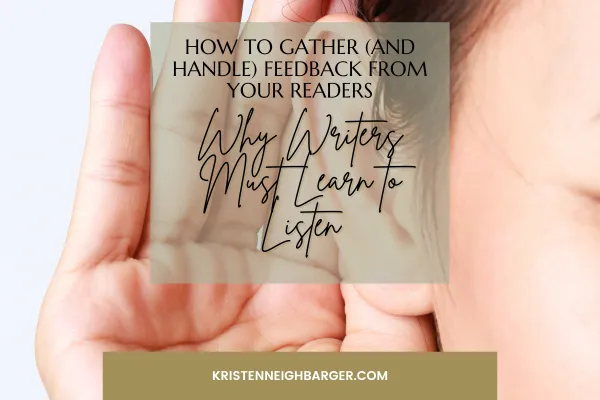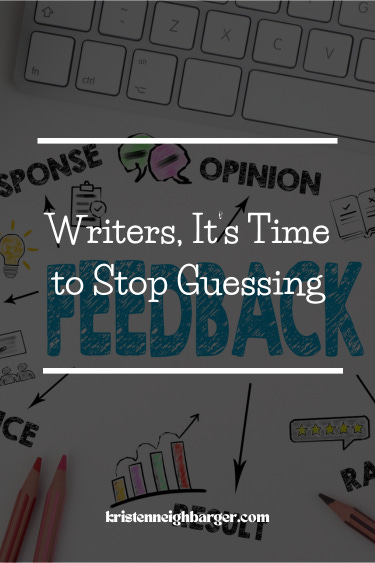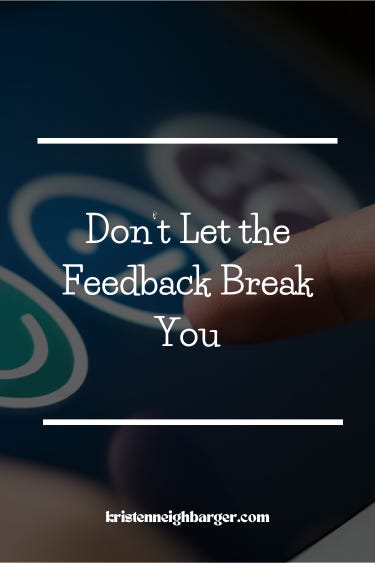
Why Writers Must Learn to Listen
I grew up in the ’80s and ’90s.
They were not exactly the decades of emotional intelligence. There wasn’t much room for expressing feelings, advocating for your needs, or, frankly, being a healthy person in relationships.
Instead, these were the phrases we absorbed on repeat:
Suck it up and get over it.
But did you die?
Is there blood?
Put your big girl panties on.
Man up.
Stop crying, or I’ll give you something to cry about.
Rub some dirt on it.
No pain, no gain.
What doesn’t kill you makes you stronger.
Don’t be a baby.
Sound familiar?
By the grace of God (and a really good therapist), I’ve started to untangle myself from that mindset. Slowly but surely, I’ve been learning how to name what I need—and even advocate for it. (Most days. Kind of.)
And that’s something we have to learn as writers too.
Because being an author isn’t just about writing what we want to say—it’s about holding space for what our readers need to hear.

Why Gathering Reader Feedback Matters
I can almost see your wheels spinning through the screen.
Maybe you’re thinking:
“I’m supposed to just ask people what they want? What if they hate my ideas?”
I get it. Asking for feedback is vulnerable. Accepting feedback? Even more so. But when we ignore it, dig in our heels, and refuse to pivot, we’re really just channeling those old ’90s vibes—telling our readers to “suck it up” and read what we wrote anyway.
Yikes.
If it’s never occurred to you to gather feedback from your audience, now’s the perfect time to start.
3 Simple Ways to Gather Feedback from Your Readers
1. Ask a direct question.
Something as simple as, “Who would be interested in…” can go a long way. Yes, it’s scary. You’re putting your idea out there before it’s polished. But this kind of vulnerability saves you from creating something no one reads—and gives your audience a voice in the process.
2. Pay attention to your comments and DMs.
If a certain post gets a lot of shares, saves, or heartfelt responses—that’s your audience telling you something. And when something lands with a thud (or gets crickets), that’s information too. Engagement is feedback. Tune in.
3. Use tools like polls, quizzes, or question boxes.
On Instagram, Substack, email, or inside a Facebook group—these low-barrier tools invite quick input. Let your readers feel like co-creators. A simple “this or that” poll might just shape your next blog series or course before you spend hours building it.

But What If the Feedback Hurts?
Maybe you’re thinking, “That all sounds great, but what do I do when the feedback isn’t so nice?”
Friend, I’ve been there. And here’s how I navigate those choppy waters:
1. Acknowledge that it sucks.
Negative feedback hurts. You’re not weak for feeling that. Sit with it. Name it. And then decide to move forward.
2. Learn from what’s useful.
Not all feedback deserves your energy. Some belongs in the trash (aka “File 13”). But sometimes, hard feedback comes from a genuine place. Discern what’s helpful, make adjustments if needed, and carry on.
3. Don’t take it personally.
People are messy. And internet courage is a real thing. When the criticism stings, remind yourself: their reaction often says more about them than about you.
Writer, Keep Listening
You’re going to face rejection, criticism, and uncomfortable feedback. That’s part of the deal. But you’ll also receive encouragement, appreciation, and those “I needed this” messages that keep you going.
Don’t let the negative eclipse the positive.
This week, I challenge you to:
Ask your readers what they need from you.
Run a quick poll or question box.
Test an idea before building it out.
Then come back and let me know how it went. I’m cheering you on.

Reflection Questions
What new idea could you test with your audience this week?
What scares you about asking for feedback?
How will you handle negative feedback when it comes?
🌿 Looking for fresh inspiration and real connection with fellow writers?
The Hope Story Conference is happening January 29–31, 2026 in Charlotte, North Carolina, and it’s one of my favorite spaces for writers who want to grow in both craft and calling. With keynote speakers like Ruth Chou Simons and Ann Voskamp, you’ll leave refreshed, equipped, and reminded that your story truly matters.
It’s a weekend filled with practical workshops, meaningful community, and encouragement for every stage of the writing journey.
👉 Grab your ticket here: Hope Story Conference
(That’s my affiliate link—thank you for using it to support my work!)
